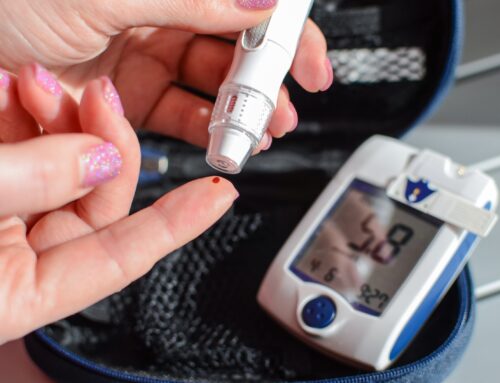Type 2 diabetes affects millions of people worldwide and is characterized by high levels of sugar (glucose) in the blood. The condition is usually treated with lifestyle changes, such as a healthy diet and exercise, and medication. Tirzepatide injections are a relatively new medication that has shown promise in improving blood sugar control in people with type 2 diabetes. In this article, we will explore the benefits of tirzepatide injections, its dosage, side effects, and how it works.
What are Tirzepatide Injections?
Tirzepatide injections are a type of diabetes medication known as a glucagon-like peptide 1 receptor agonist (GLP-1 RA). It works by mimicking the effects of a hormone called glucagon-like peptide 1 (GLP-1), which is released by the intestine after a meal. GLP-1 stimulates the release of insulin, which helps to lower blood sugar levels. It also slows down the emptying of the stomach, which helps to control appetite and reduce food intake.
Benefits of Tirzepatide Injections for Blood Sugar Control
Clinical trials have shown that tirzepatide injections can significantly reduce blood sugar levels in people with type 2 diabetes. In a phase 3 trial, people with uncontrolled diabetes who received tirzepatide injections experienced an average reduction in HbA1c levels (a measure of average blood sugar over the past two to three months) of up to 2.4%. This reduction was greater than that observed with other GLP-1 RAs and was sustained over a longer period of time.
Tirzepatide Injections for Weight Loss
In addition to its blood sugar-lowering effects, tirzepatide injections have also been shown to promote weight loss in people with type 2 diabetes. In a phase 2 trial, people who received tirzepatide injections lost an average of 11.3% of their body weight after 26 weeks of treatment. This is significant because obesity is a major risk factor for developing type 2 diabetes, and weight loss can improve blood sugar control and reduce the risk of complications.
Managing Insulin Resistance with Tirzepatide Injections
Insulin resistance is a common feature of type 2 diabetes, where the body becomes less sensitive to the effects of insulin. Tirzepatide injections have been shown to improve insulin sensitivity and reduce insulin resistance in people with type 2 diabetes. This is thought to be due to its ability to activate multiple receptors, including the GLP-1 receptor and the glucose-dependent insulinotropic polypeptide receptor, which work together to regulate blood sugar levels and insulin secretion.
Tirzepatide vs Insulin Injections: Which is Better for Type 2 Diabetes Treatment?
Many people with type 2 diabetes require medication to help manage their blood sugar levels. Insulin injections are a common treatment option, but there is a new medication on the market that may be a better option for some patients. Tirzepatide injections have been shown to be effective in controlling blood sugar levels, promoting weight loss, and reducing cardiovascular risk. But how do they compare to insulin injections? In this section, we’ll compare the two treatments to help you decide which is right for you.
Tirzepatide vs Insulin: How They Work
Insulin injections are a form of diabetes medication that helps the body use glucose for energy. When someone has type 2 diabetes, their body doesn’t use insulin effectively, causing glucose to build up in the bloodstream. Insulin injections help regulate blood sugar levels by replacing the missing or ineffective insulin in the body.
Tirzepatide injections, on the other hand, are a type of medication known as a glucagon-like peptide 1 receptor agonist (GLP-1 RA). They work by mimicking the effects of a hormone called glucagon-like peptide 1 (GLP-1), which is produced naturally in the body. GLP-1 helps regulate blood sugar levels by stimulating insulin production, suppressing the release of glucagon (a hormone that raises blood sugar levels), and slowing down digestion.
Tirzepatide vs Insulin: Effectiveness
Clinical trials have shown that tirzepatide injections are more effective at controlling blood sugar levels than insulin injections. In one study, patients who took tirzepatide saw an average reduction in their HbA1c levels (a measure of blood sugar control) of 2.4%, compared to 1.7% for patients who took insulin. Tirzepatide was also more effective at promoting weight loss than insulin, with patients losing an average of 12.4% of their body weight compared to 3.3% for insulin patients.
Tirzepatide vs Insulin: Side Effects
Both tirzepatide and insulin injections can cause side effects. The most common side effects of tirzepatide include nausea, vomiting, diarrhea, and constipation. These side effects usually go away on their own after a few weeks of treatment. Insulin injections can also cause side effects, such as low blood sugar (hypoglycemia), weight gain, and injection site reactions.
Tirzepatide vs Insulin: Dosage
The dosage of tirzepatide injections varies depending on the patient’s individual needs. The starting dose is typically 5mg once a week, which can be increased to 10mg and then 15mg if necessary. Insulin dosage also varies depending on the patient’s needs and can range from a few units to several dozen units per day.
Tirzepatide vs Insulin: Which is Right for You?
Deciding between tirzepatide and insulin injections depends on several factors, including your individual needs and preferences. Tirzepatide may be a better option for patients who struggle with weight loss, as it has been shown to be more effective than insulin in promoting weight loss. It may also be a better option for patients who are at high risk of cardiovascular disease, as tirzepatide has been shown to reduce cardiovascular risk more effectively than insulin.
On the other hand, insulin injections may be a better option for patients who prefer a more traditional form of diabetes medication or who have difficulty managing their blood sugar levels with other medications.
In conclusion, Tirzepatide injections represent a promising new option for individuals with type 2 diabetes who struggle with blood sugar control, weight management, insulin resistance, and cardiovascular risk reduction. Tirzepatide has shown to be effective in improving blood sugar control, promoting weight loss, reducing insulin resistance, and lowering cardiovascular risk. However, like all medications, Tirzepatide does have some potential side effects, and it is essential to work closely with your healthcare provider to monitor your response to treatment.
If you are interested in Tirzepatide injections, speak with your healthcare provider to determine if it may be right for you. Your provider can provide you with more information on the benefits and risks of this medication and help you develop a treatment plan tailored to your unique needs.
It is also essential to continue making lifestyle changes to support your overall health, such as following a healthy diet, getting regular exercise, and managing stress. These lifestyle changes, combined with Tirzepatide injections, can help you achieve optimal blood sugar control, weight management, and cardiovascular health.
If you’re living with type 2 diabetes and want to learn more about the benefits of Tirzepatide injections, then schedule a consultation with the Alpha Male Clinic today. Our team of experts can provide you with comprehensive information on how Tirzepatide can help you manage your blood sugar levels, lose weight, and reduce your risk of cardiovascular disease. Don’t wait any longer to take control of your health – contact us now to schedule your consult.
Tirzepatide is a dual-action medication that aids in weight loss and blood sugar control. It works by targeting the glucagon-like peptide-1 (GLP-1) and glucose-dependent insulinotropic polypeptide (GIP) receptors, promoting reduced appetite, improved glycemic management, and weight loss.
Tirzepatide is typically prescribed for adults with type 2 diabetes and weight-related health issues. However, it is essential to consult with a healthcare provider to determine if Tirzepatide is the right treatment option for you.
Tirzepatide is administered as a subcutaneous injection, usually once a week. Your healthcare provider will guide you on the proper injection technique and dosage.
It is crucial to discuss your current medications and medical history with your healthcare provider before starting Tirzepatide. Your provider will determine if Tirzepatide can be safely combined with other diabetes medications based on your specific situation.
The time it takes to see results with Tirzepatide can vary between individuals. Some people may notice weight loss and improved blood sugar control within a few weeks, while others may take a few months to achieve significant results.
Some common side effects of Tirzepatide include nausea, vomiting, diarrhea, and constipation. These side effects are usually mild and subside as your body adjusts to the medication. If you experience severe or persistent side effects, consult your healthcare provider.
The duration of Tirzepatide treatment depends on your individual needs, goals, and response to the medication. Your healthcare provider will monitor your progress and adjust your treatment plan as needed.
Tirzepatide is primarily prescribed for individuals with type 2 diabetes and weight-related health issues. However, it is important to consult your healthcare provider to determine if Tirzepatide is suitable for you, even if you do not have diabetes.
It is possible to regain weight after discontinuing Tirzepatide treatment. To maintain long-term weight loss results, it is essential to adopt a healthy lifestyle, including a balanced diet and regular physical activity. Consult your healthcare provider for guidance on maintaining your weight loss after completing your Tirzepatide treatment.
Insurance coverage for Tirzepatide varies depending on your provider and specific plan. It is essential to check with your insurance company to determine your coverage and any out-of-pocket expenses you may incur.



